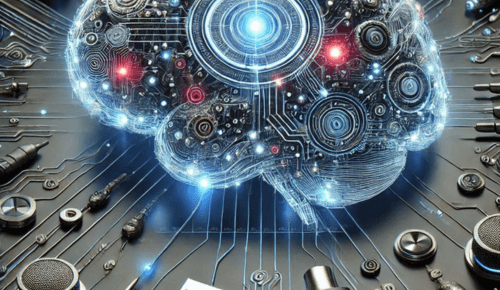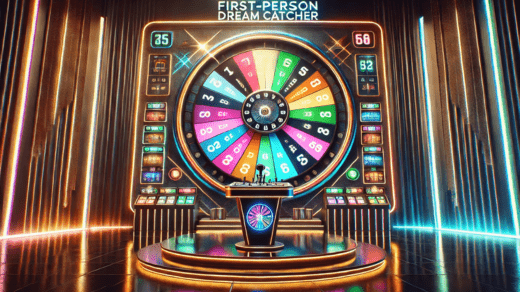Neurotechnology is rapidly evolving, offering new possibilities for enhancing the human brain’s capabilities and improving lives through various devices. These innovations, which include brain-computer interfaces (BCIs), neural implants, and neurostimulation technologies, are creating exciting opportunities in fields such as healthcare, rehabilitation, and even entertainment. As technology continues to advance, neurotechnology promises to redefine the way we understand and interact with the brain, providing hope for patients with neurological conditions and offering exciting new ways to enhance cognitive abilities.
What Are Neurotechnology Devices?
Neurotechnology devices are tools that interact directly with the brain, either to monitor brain activity, enhance cognitive functions, or treat neurological disorders. These devices work by using various techniques such as electrical stimulation, brain wave monitoring, and neural interfaces to influence or measure brain activity.
The most prominent example of neurotechnology is the brain-computer interface (BCI), which allows direct communication between the brain and an external device, such as a computer or prosthetic limb. BCIs open up new possibilities for individuals with paralysis or other disabilities, enabling them to control devices and interact with the world using their thoughts.
Applications of Neurotechnology in Healthcare
Neurotechnology has already shown significant potential in the healthcare industry, particularly in treating neurological disorders such as epilepsy, Parkinson’s disease, and chronic pain. One of the most common applications is deep brain stimulation (DBS), which involves implanting a small device in the brain that sends electrical impulses to targeted areas to alleviate symptoms of conditions like Parkinson’s and depression.
For patients with conditions such as spinal cord injuries or ALS, neurotechnology devices like neural prosthetics can help restore some lost functions. These devices can interpret brain signals and convert them into commands for robotic limbs or exoskeletons, giving users the ability to perform tasks they otherwise couldn’t.
Enhancing Cognitive Abilities with Neurostimulation
In addition to helping those with disabilities, neurotechnology is being used to enhance cognitive abilities in healthy individuals. Neurostimulation devices, such as transcranial direct current stimulation (tDCS), work by applying low electrical currents to specific areas of the brain, enhancing learning, memory, and focus. These devices are increasingly being used by students, professionals, and athletes to improve their performance.
Researchers are also investigating neurotechnology’s potential in cognitive rehabilitation for individuals recovering from brain injuries, strokes, or other cognitive impairments. Devices that stimulate neural pathways could help patients regain lost skills and improve cognitive function over time.
Neurotechnology for Mental Health Treatment
Mental health conditions, such as depression, anxiety, and PTSD, are another area where neurotechnology is showing promise. Invasive techniques, like DBS, are used to treat severe depression when other treatments fail. Non-invasive methods, such as transcranial magnetic stimulation (TMS), can target specific brain regions to alleviate symptoms of depression and anxiety without the need for medications.
These therapies provide new hope for patients who struggle with mental health conditions, offering a way to regulate brain activity and improve their emotional well-being.
The Future of Neurotechnology
As the field of neurotechnology continues to advance, the future holds exciting possibilities. Researchers are working to develop even more sophisticated brain-computer interfaces that could lead to seamless integration between the brain and technology. This could pave the way for advanced prosthetics, augmented reality experiences, and even the potential for direct brain-to-brain communication.
Moreover, with the rise of neurotechnologies for enhancing mental and cognitive performance, there are opportunities to optimize learning, creativity, and productivity in fields like education, business, and entertainment.
Ethical Considerations and Privacy Concerns
While neurotechnology holds immense promise, it also raises important ethical questions, particularly regarding privacy and security. As devices become more integrated with our brains, concerns about the potential for mind-reading, surveillance, and the misuse of personal data become more pressing. Striking the right balance between innovation and safeguarding personal privacy will be essential as neurotechnology continues to evolve.
Furthermore, issues related to accessibility, affordability, and the potential for creating inequality between individuals who can afford neurotechnological enhancements and those who cannot will need to be addressed to ensure that these technologies benefit society as a whole.
Neurotechnology and Entertainment
While much of the focus on neurotechnology has been on healthcare and cognitive enhancement, the entertainment industry is also beginning to explore the potential applications of these devices. Brainwave monitoring and neurofeedback can offer new ways to engage audiences, making gaming and interactive experiences more immersive.
In gaming, for instance, neurotechnology could enable players to control characters and environments using their brain activity. Imagine playing a game with just your thoughts, where every move, jump, or decision is driven by your brain’s electrical signals. This futuristic concept is becoming a reality, with some games already incorporating neurotechnology into their design.
For those looking for entertainment that is a little less intense but just as fun, playing a Slot game provides a simple and enjoyable way to relax. Slot games, which rely on chance and luck, are a great way to unwind after a day of exploring the latest in technological innovations. Whether you prefer traditional slots or modern video slots, they offer a perfect balance of fun and excitement—similar to the thrill of experimenting with cutting-edge technologies like neurotechnology!





